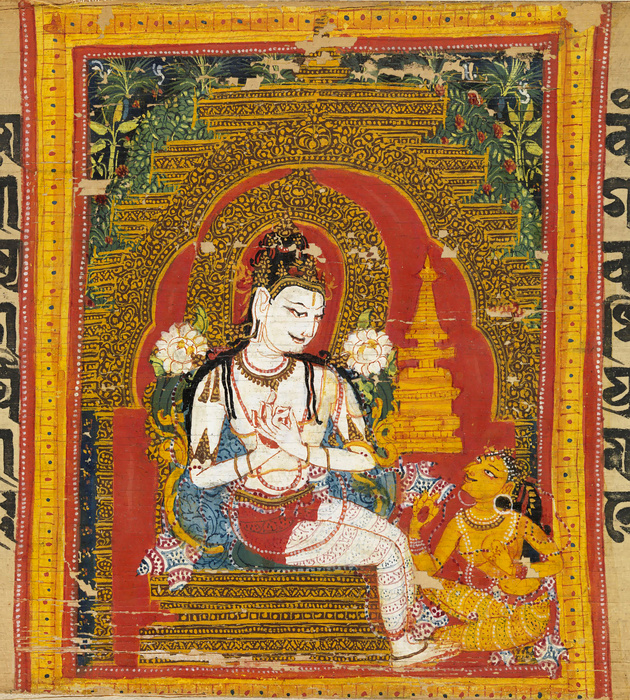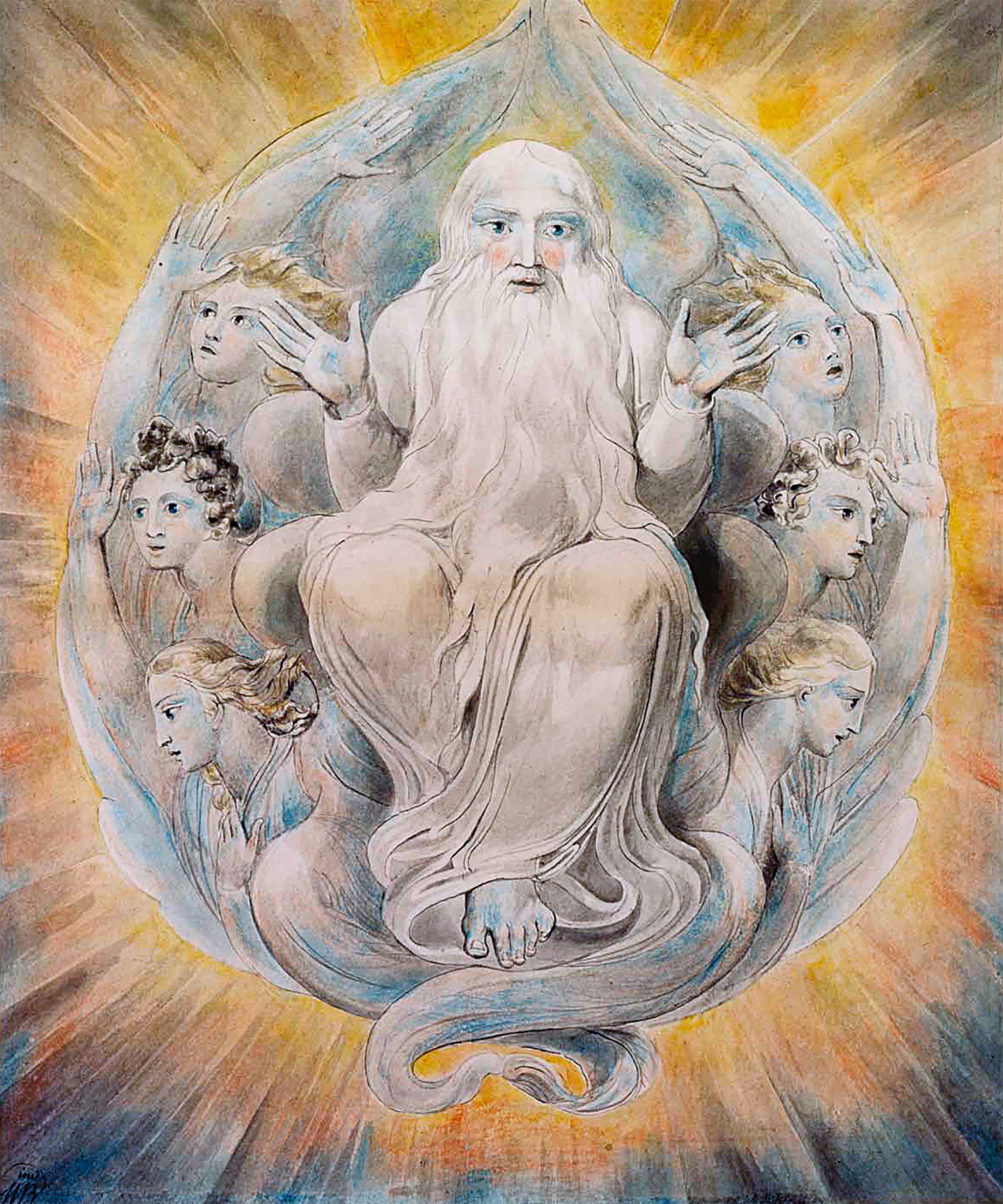|
ŇöaŠĻÖkaranandana
ŇöaŠĻÖkaranandana (fl. c. 9th or 10th century), (Tibetan: ''Bde byed dga‚Äô ba)'' was a Mahayana Buddhist philosopher, and a brahmin lay devotee (upńĀsaka) active in Kashmir in the Buddhist logico-epistemology, epistemological (''pramana'') tradition of DignńĀga, Dignaga and Dharmakirti, Dharmakńęrti. He was quite influential in both Kashmir and Tibet, and became known as "the second Dharmakńęrti," and ‚Äúthe Great Brahmin.‚ÄĚ"ŇöaŠĻÖkaranandana" (Eltschinger) in Silk, Jonathan A (editor in chief). ''Brill‚Äôs Encyclopedia of Buddhism Volume II: Lives.'' ŇöaŠĻÖkaranandana is cited by both Kashmir Shaivism, Kashmiri Shaiva authors like Abhinavagupta and by Tibetan Buddhist authors and translators. Vincent Eltschinger states that he was "the main interlocutor of the Shaivism, Saiva Pratyabhijna, Pratyabhij√Īa school and as one of the most influential thinkers among the early generations of Tibetan philosophers."Eltschinger, Vincent. ''Latest News from a Kashmirian ‚ÄúSecond Dharmakńęrt ... [...More Info...] [...Related Items...] OR: [Wikipedia] [Google] [Baidu] |
Yogachara
Yogachara (, IAST: ') is an influential tradition of Buddhist philosophy and psychology emphasizing the study of cognition, perception, and consciousness through the interior lens of meditation, as well as philosophical reasoning (hetuvidyńĀ). Yogachara was one of the two most influential traditions of Mahayana, Mahayana Buddhism in India, along with Madhyamaka. The compound ''YogńĀcńĀra'' literally means "practice of yoga", or "one whose practice is yoga", hence the name of the school is literally "the school of the yogins". YogńĀcńĀra was also variously termed ''Vij√ĪńĀnavńĀda'' (the doctrine of consciousness), ''Vij√ĪaptivńĀda'' (the doctrine of ideas or percepts) or ''Vij√ĪaptimńĀtratńĀ-vńĀda'' (the doctrine of 'mere representation'), which is also the name given to its major theory of mind which seeks to deconstruct how we perceive the world. There are several interpretations of this main theory: various forms of Idealism, as well as a Phenomenology (philosophy), phenomen ... [...More Info...] [...Related Items...] OR: [Wikipedia] [Google] [Baidu] |
Buddhist Logico-epistemology
Buddhist logico-epistemology is a term used in Western scholarship to describe Buddhism, Buddhist systems of ' (Epistemology, epistemic tool, valid cognition) and ' (reasoning, logic). While the term may refer to various Buddhist systems and views on reasoning and epistemology, it is most often used to refer to the work of the "Epistemological school" (Sanskrit: ), i.e. the school of DignńĀga, Dignaga and Dharmakirti which developed from the 5th through 7th centuries and remained the main system of Buddhist reasoning until the Decline of Buddhism in the Indian subcontinent, decline of Buddhism in India. The early Buddhist texts show that the Gautama Buddha, historical Buddha was familiar with certain rules of reasoning used for debating purposes and made use of these against his opponents. He also seems to have held certain ideas about epistemology and reasoning, though he did not put forth a logico-epistemological system. The Theravada ''KathńĀvatthu'' contains some rules on ... [...More Info...] [...Related Items...] OR: [Wikipedia] [Google] [Baidu] |
Dharmakirti
Dharmakńęrti (fl. ;), was an influential Indian Buddhist philosopher who worked at NńĀlandńĀ.Tom Tillemans (2011)Dharmakirti Stanford Encyclopedia of Philosophy He was one of the key scholars of epistemology ( pramńĀŠĻáa) in Buddhist philosophy, and is associated with the YogńĀcńĀra and SautrńĀntika schools. He was also one of the primary theorists of Buddhist atomism. His works influenced the scholars of MńęmńĀŠĻÉsńĀ, Nyaya and Shaivism schools of Hindu philosophy as well as scholars of Jainism. Dharmakńęrti's '' PramńĀŠĻáavńĀrttika'', his largest and most important work, was very influential in India and Tibet as a central text on pramana ('valid knowledge instruments') and was widely commented on by various Indian and Tibetan scholars. His texts remain part of studies in the monasteries of Tibetan Buddhism. History Little is known for certain about the life of Dharmakirti. As per John Taber, the only reliable information that we have about his life was that he was a ... [...More Info...] [...Related Items...] OR: [Wikipedia] [Google] [Baidu] |
Mahayana
MahńĀyńĀna ( ; , , ; ) is a term for a broad group of Buddhist traditions, Buddhist texts#MahńĀyńĀna texts, texts, Buddhist philosophy, philosophies, and practices developed in ancient India ( onwards). It is considered one of the three main existing branches of Buddhism, the others being TheravńĀda and VajrayńĀna.Harvey (2013), p. 189. MahńĀyńĀna accepts the main scriptures and teachings of Early Buddhist schools, early Buddhism but also recognizes various doctrines and texts that are not accepted by Theravada Buddhism as original. These include the MahńĀyńĀna sŇętras and their emphasis on the ''bodhisattva'' path and Prajnaparamita, ''Praj√ĪńĀpńĀramitńĀ''. VajrayńĀna or Mantra traditions are a subset of MahńĀyńĀna which makes use of numerous Tantra, tantric methods VajrayńĀnists consider to help achieve Buddhahood. MahńĀyńĀna also refers to the path of the bodhisattva striving to become a fully awakened Buddha for the benefit of all sentience, sentient beings, and is thus also ... [...More Info...] [...Related Items...] OR: [Wikipedia] [Google] [Baidu] |
Epistemology
Epistemology is the branch of philosophy that examines the nature, origin, and limits of knowledge. Also called "the theory of knowledge", it explores different types of knowledge, such as propositional knowledge about facts, practical knowledge in the form of skills, and knowledge by acquaintance as a familiarity through experience. Epistemologists study the concepts of belief, truth, and justification to understand the nature of knowledge. To discover how knowledge arises, they investigate sources of justification, such as perception, introspection, memory, reason, and testimony. The school of skepticism questions the human ability to attain knowledge while fallibilism says that knowledge is never certain. Empiricists hold that all knowledge comes from sense experience, whereas rationalists believe that some knowledge does not depend on it. Coherentists argue that a belief is justified if it coheres with other beliefs. Foundationalists, by contrast, maintain th ... [...More Info...] [...Related Items...] OR: [Wikipedia] [Google] [Baidu] |
Creator Deity
A creator deity or creator god is a deity responsible for the creation of the Earth, world, and universe in human religion and mythology. In monotheism, the single God is often also the creator. A number of monolatristic traditions separate a secondary creator from a primary transcendent being, identified as a primary creator.(2004) Sacred Books of the Hindus Volume 22 Part 2: Pt. 2, p. 67, R.B. Vidyarnava, Rai Bahadur Srisa Chandra Vidyarnava Monotheism Atenism Initiated by Pharaoh Akhenaten and Queen Nefertiti around 1330 BCE, during the New Kingdom period in ancient Egyptian history. They built an entirely new capital city ( Akhetaten) for themselves and worshippers of their sole creator god in a wilderness. His father used to worship Aten alongside other gods of their polytheistic religion. Aten, for a long time before his father's time, was revered as a god among the many gods and goddesses in Egypt. Atenism was countermanded by later pharaoh Tutankhamun, as chro ... [...More Info...] [...Related Items...] OR: [Wikipedia] [Google] [Baidu] |
Habilitation
Habilitation is the highest university degree, or the procedure by which it is achieved, in Germany, France, Italy, Poland and some other European and non-English-speaking countries. The candidate fulfills a university's set criteria of excellence in research, teaching, and further education, which usually includes a dissertation. The degree, sometimes abbreviated ''Dr. habil''. (), ''dr hab.'' (), or ''D.Sc.'' ('' Doctor of Sciences'' in Russia and some CIS countries), is often a qualification for full professorship in those countries. In German-speaking countries it allows the degree holder to bear the title ''PD'' (for ). In a number of countries there exists an academic post of docent, appointment to which often requires such a qualification. The degree conferral is usually accompanied by a public oral defence event (a lecture or a colloquium) with one or more opponents. Habilitation is usually awarded 5‚Äď15 years after a PhD degree or its equivalent. Achieving this ... [...More Info...] [...Related Items...] OR: [Wikipedia] [Google] [Baidu] |
Pramana
''Pramana'' (; IAST: PramńĀŠĻáa) literally means " proof" and "means of knowledge".pramANa Sanskrit-English Dictionary, Koeln University, GermanyJames Lochtefeld, "Pramana" in The Illustrated Encyclopedia of Hinduism, Vol. 2: N-Z, Rosen Publishing. , pages 520-521 One of the core concepts in Indian , pramanas are one or more reliable and valid means by which human beings gain accurate, true knowledge. The focus of pramana is how correct knowledge can be acquired, how one knows, how one does not know, and to what extent knowledge pertinent about someone or something can be acquired.Karl Potter (2002), Presup ... [...More Info...] [...Related Items...] OR: [Wikipedia] [Google] [Baidu] |
Atheist Philosophers
Atheism, in the broadest sense, is an absence of belief in the existence of deities. Less broadly, atheism is a rejection of the belief that any deities exist. In an even narrower sense, atheism is specifically the position that there no deities. Atheism is contrasted with theism, which is the belief that at least one deity exists. Historically, evidence of atheistic viewpoints can be traced back to classical antiquity and early Indian philosophy. In the Western world, atheism declined after Christianity gained prominence. The 16th century and the Age of Enlightenment marked the resurgence of atheistic thought in Europe. Atheism achieved a significant position worldwide in the 20th century. Estimates of those who have an absence of belief in a god range from 500 million to 1.1 billion people. Atheist organizations have defended the autonomy of science, freedom of thought, secularism, and secular ethics. Arguments for atheism range from philosophical to social approaches. ... [...More Info...] [...Related Items...] OR: [Wikipedia] [Google] [Baidu] |
10th-century Indian Philosophers
1 (one, unit, unity) is a number, numeral, and glyph. It is the first and smallest positive integer of the infinite sequence of natural numbers. This fundamental property has led to its unique uses in other fields, ranging from science to sports, where it commonly denotes the first, leading, or top thing in a group. 1 is the unit of counting or measurement, a determiner for singular nouns, and a gender-neutral pronoun. Historically, the representation of 1 evolved from ancient Sumerian and Babylonian symbols to the modern Arabic numeral. In mathematics, 1 is the multiplicative identity, meaning that any number multiplied by 1 equals the same number. 1 is by convention not considered a prime number. In digital technology, 1 represents the "on" state in binary code, the foundation of computing. Philosophically, 1 symbolizes the ultimate reality or source of existence in various traditions. In mathematics The number 1 is the first natural number after 0. Each natural number, ... [...More Info...] [...Related Items...] OR: [Wikipedia] [Google] [Baidu] |





